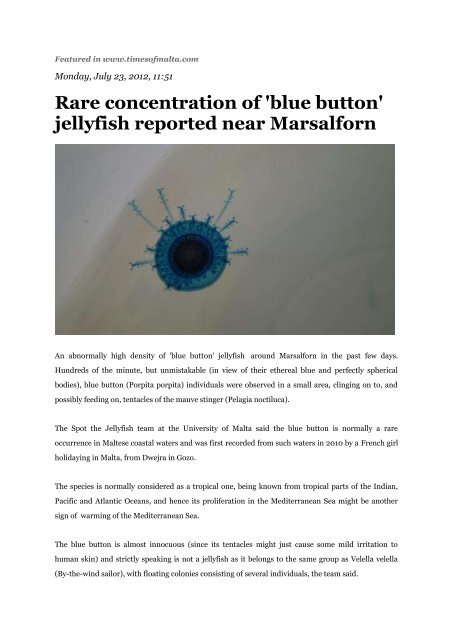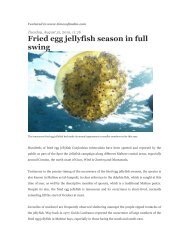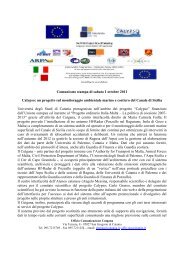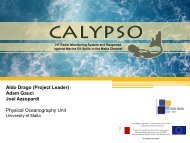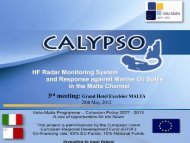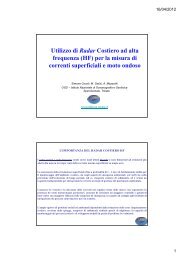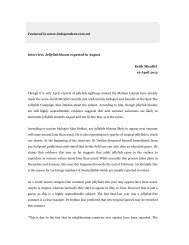Rare concentration of 'blue button' jellyfish reported near Marsalforn
Rare concentration of 'blue button' jellyfish reported near Marsalforn
Rare concentration of 'blue button' jellyfish reported near Marsalforn
You also want an ePaper? Increase the reach of your titles
YUMPU automatically turns print PDFs into web optimized ePapers that Google loves.
Featured in www.times<strong>of</strong>malta.com<br />
Monday, July 23, 2012, 11:51<br />
<strong>Rare</strong> <strong>concentration</strong> <strong>of</strong> <strong>'blue</strong> <strong>button'</strong><br />
<strong>jellyfish</strong> <strong>reported</strong> <strong>near</strong> <strong>Marsalforn</strong><br />
An abnormally high density <strong>of</strong> <strong>'blue</strong> <strong>button'</strong> <strong>jellyfish</strong> around <strong>Marsalforn</strong> in the past few days.<br />
Hundreds <strong>of</strong> the minute, but unmistakable (in view <strong>of</strong> their ethereal blue and perfectly spherical<br />
bodies), blue button (Porpita porpita) individuals were observed in a small area, clinging on to, and<br />
possibly feeding on, tentacles <strong>of</strong> the mauve stinger (Pelagia noctiluca).<br />
The Spot the Jellyfish team at the University <strong>of</strong> Malta said the blue button is normally a rare<br />
occurrence in Maltese coastal waters and was first recorded from such waters in 2010 by a French girl<br />
holidaying in Malta, from Dwejra in Gozo.<br />
The species is normally considered as a tropical one, being known from tropical parts <strong>of</strong> the Indian,<br />
Pacific and Atlantic Oceans, and hence its proliferation in the Mediterranean Sea might be another<br />
sign <strong>of</strong> warming <strong>of</strong> the Mediterranean Sea.<br />
The blue button is almost innocuous (since its tentacles might just cause some mild irritation to<br />
human skin) and strictly speaking is not a <strong>jellyfish</strong> as it belongs to the same group as Velella velella<br />
(By-the-wind sailor), with floating colonies consisting <strong>of</strong> several individuals, the team said.
The Spot the Jellyfish initiative is coordinated by Dr. Alan Deidun, Pr<strong>of</strong>. Aldo Drago and staff <strong>of</strong> IOI-<br />
MOC, and enjoys the support <strong>of</strong> the Malta Tourism Authority (MTA) and <strong>of</strong> Nature Trust, Friends <strong>of</strong><br />
the Earth, EkoSkola, the BlueFlag Malta programme and Sharklab.<br />
http://www.science20.com/citizen_science_journal/<strong>jellyfish</strong>_reporting_citizen_scientists_malta<br />
carried an extensive feature on the Maltese initiative.


